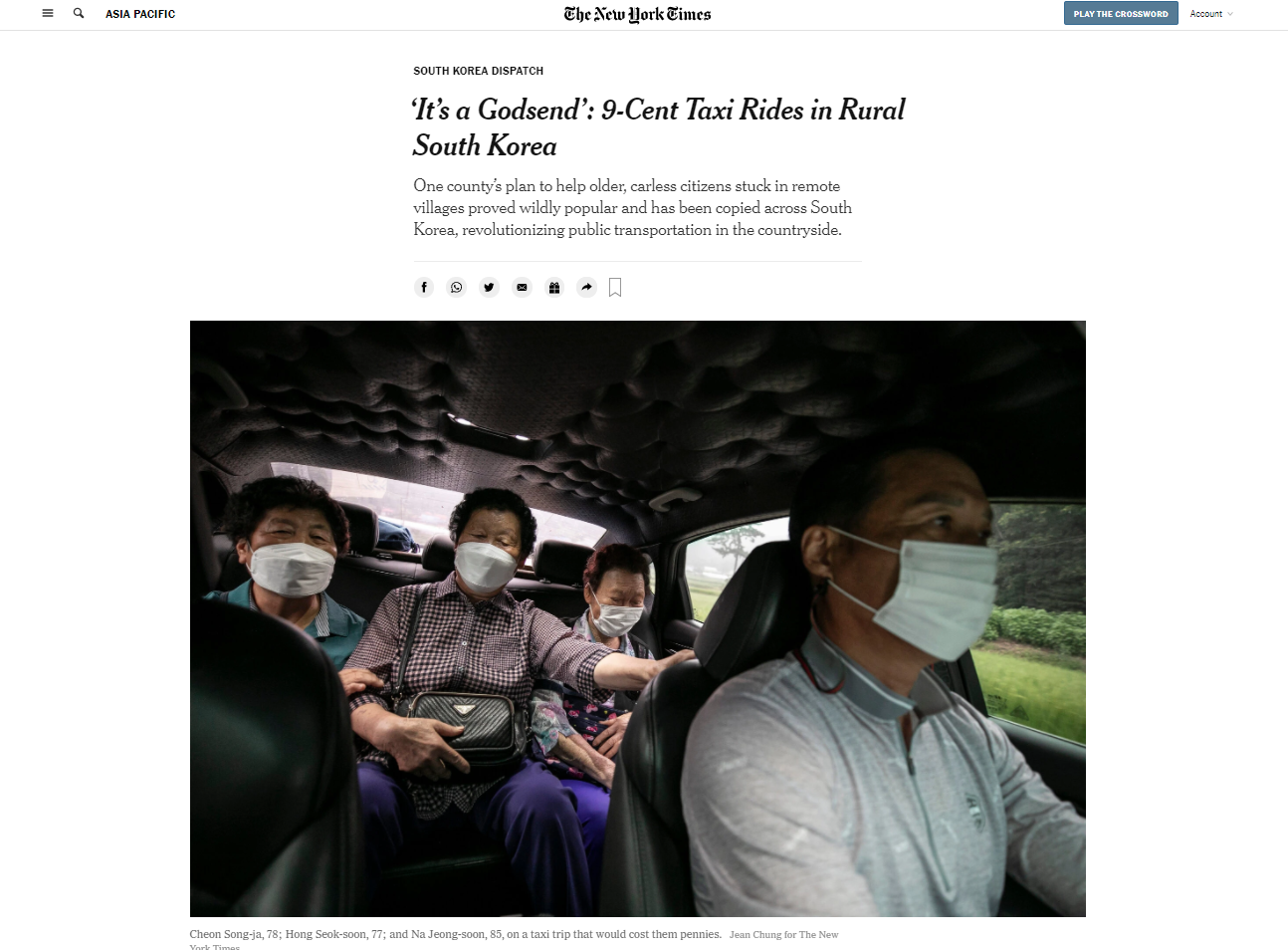
The New York Times on Sept. 11 introduced the "Taxi of Hope" in Seocheon-gun County, Chungcheongnam-do Province, in the article "'It's a Godsend': 9-Cent Taxi Rides in Rural South Korea." (Screen capture from Times' website)
The New York Times has given detailed coverage to "KRW 100 taxis" in rural Seocheon-gun County, Chungcheongnam-do Province.
In its feature "'It's a Godsend': 9-cent Taxi Rides in Rural South Korea," The Times on Sept. 11 introduced the county's "Taxi of Hope" project, in which cab fare is just KRW 100 per ride, and described it as "revolutionizing public transportation in the countryside."
The transportation welfare project targets residents of rural areas with weak public transportation. The fare is just KRW 100 (USD 0.09) to a destination and the county government pays the rest. Anyone whose village is more than 700 m from the nearest bus stop can call this taxi.
With the county's population and number of bus passengers declining in 2013, bus drivers went on strike due to the ensuing losses. As a solution, Seocheon-gun authorities began the project in June that year by charging passengers just KRW 100 for short trips and KRW 1,500 for longer ones.
The Times said that before the project was introduced, the same taxi rides would cost between KRW 10,000 and KRW 25,000.
The positive response to Taxi of Hope within the county has resulted in the spread of the project to other regions in the nation.
"More than 2.7 million passengers used similar taxi services in rural South Korea last year, according to government data, some deploying the service for pregnant women as well," the daily said. "Since the 100-won taxi was introduced, people in remote villages have traveled outside twice as often, according to a government survey."
"The 100-won taxis carried nearly 40,000 passengers from 40 villages in Seocheon last year. The program cost the county $147,000 (KRW 170 million)."
County resident Na Jeong-soon, 85, called the project "a godsend," saying, "The taxi now drives me all the way to my doorstep. You can't imagine what it was like in older days when I had to haul my shopping bag all the way from the bus stop to my place."
"Local taxi drivers have welcomed the program, too, because it brings extra income," The Times added.
KRW 100 cabbie Lee Ki-yeop, 65, said, "I probably know more about these old folks than anyone else because I drive them two or three times a week," adding, "When one of them misses my taxi for a week or two, I know that there is something wrong with them.”
jhaseung@korea.kr